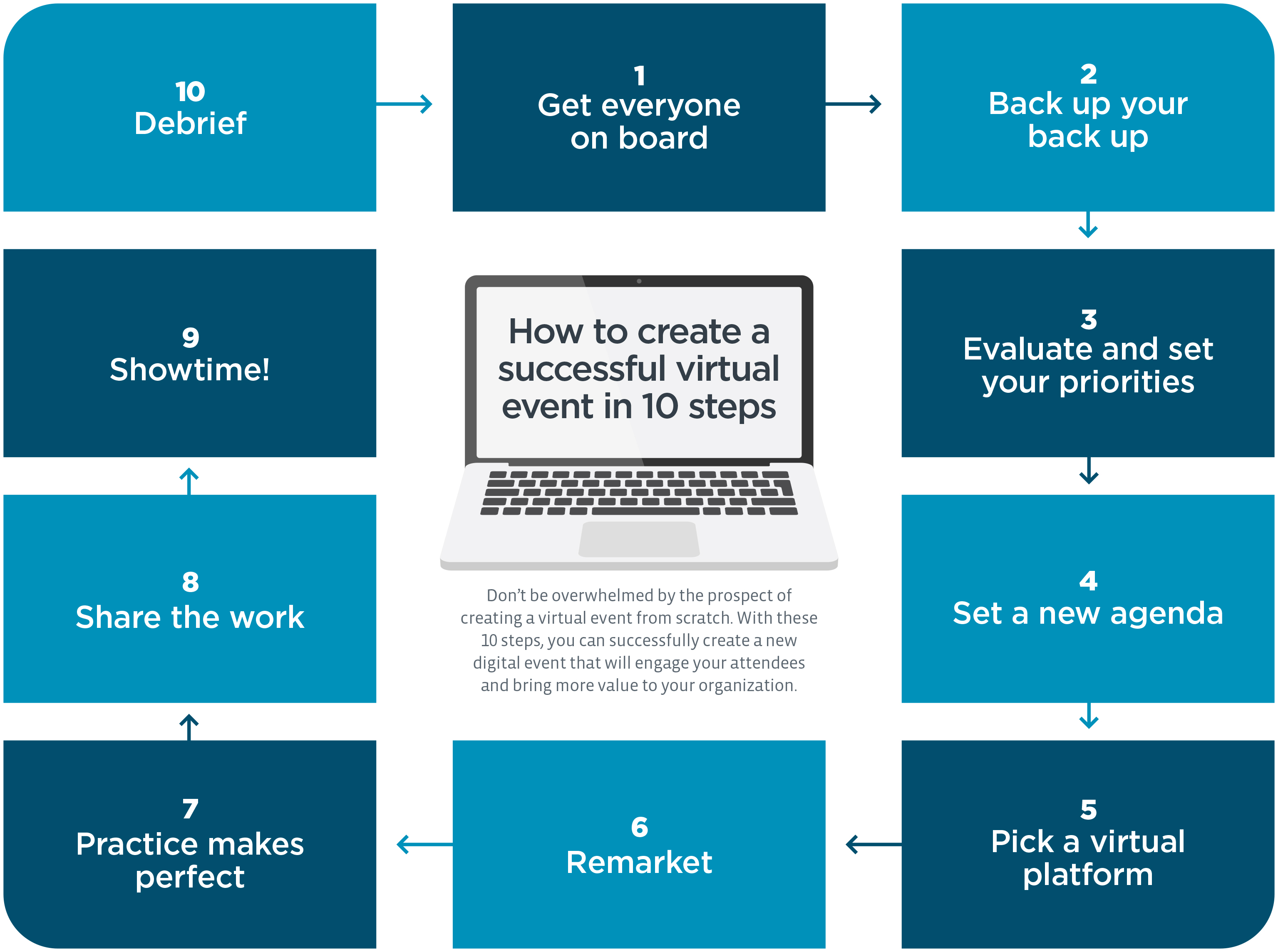Don’t be overwhelmed by the prospect of creating a virtual event from scratch. With these 10 steps, you can successfully create a new digital event that will engage your attendees and bring more value to your organization. Download a more detailed version of the infographic at right.

Build a consensus agreement among stakeholders around the need for a virtual event (as opposed to waiting for an-person event). Create a shared vision for success that everyone understands.
If you’re pivoting from a cancelled in-person event, look to maintain the good relationships you built and plan for future contracts to include force majeure clauses.
What is the objective of your virtual event? Establish clearly defined goals and strategies to get there. Consider what creates optimal value for your organization and attendees.
All content should be tailored to your target audience. In-person programming may not work online and virtual content may not work in person.
Finalize your new agenda first, then focus on selecting the appropriate social platforms that make the best sense for that programming schedule.
Get the word out about the new event with a new call-to-action, updated collateral, email and social campaigns, hashtags, and recruitment efforts.
Test equipment, transitions, speakers’ connectivity, platform latency, and any critical and redundant systems necessary to broadcast. And then test again.
Count on every member of the team to contribute to the success of the event. Make sure everyone knows their role in ensuring that success.
If you have prepared adequately, you’ll be ready to go and have the ability to pivot on the fly when needed. (And the need will arise! Just like an in-person event!)
Evaluate the event based not just on attendee satisfaction, but also on how the team and tech performed in action. Remember any lessons learned for your next planning session.
CompTIA pivoted its Communities & Councils Forum into a virtual event—in just 10 days. Click here to read how.